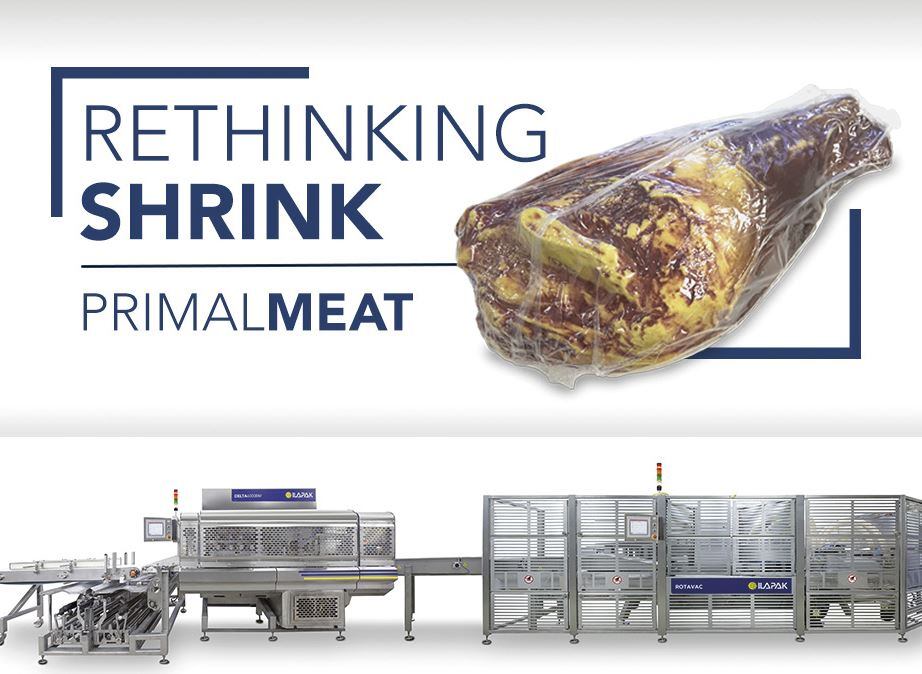In response to this demand, it has developed a fully integrated rotary vacuum packer for the protein industry called RotaVac.
Red meat & cheese
RotaVac integrates Ilapak’s Delta 6000 flow wrapper with a rotary vacuum chamber that is optimised for packing products such as red meat and cheese using shrink rollstock.
“Virtually every meat packer and processor wanting to pack fresh cuts in a vacuumed flow-wrap format still buys in pre-made shrink bags,” said Luca Somaini, product manager, Ilapak.
“However, we are seeing growing intent to move away from this labour-intensive and expensive approach, both on the grounds of cost and the food safety risks associated with the handling of fresh meat.”
Somaini added it demonstrated a prototype of the RotaVac at IFFA 2016, to get companies thinking about the benefits of producing vacuum bags in-line from roll stock, knowing it was too early for the market.
“Three years on, the mood is changing amidst the issue of rising labour costs and concerns about contamination, to the point where we believe this interest will soon translate into the first RotaVac sales,” she said.
Most meat packers and processors wanting to pack fresh cuts in a vacuumed flow-wrap format still buy in pre-made shrink bags. But the bags are expensive and manually packing the meat inside the bags and loading them onto a vacuum chamber is time-consuming and manually intensive.
The manual handling of raw meat also creates a potential contamination risk that companies are looking to avoid.
Less labour
By producing bags in-line from rollstock; packs can be formed to size to accommodate specific cuts of meat, and the need to keep hundreds of different sizes of bags in stock is eliminated. Less labour is required too, as there are fewer manual steps in the packing process.
Somaini said although the cost of labour has risen in recent years, the options for replacing expensive pre-made shrink bags with lower cost film from a reel have remained limited.
As a result, companies wanting to pack fresh cuts in a vacuumed flow wrap format had to buy three separate units - a flow wrapper, a multi-belt infeed and a vacuum system - built by three different manufacturers.
“Now, rather than having to worry about linking machines from different suppliers, meat firms can ‘plug and play’ one or all of ILAPAK’s modular Delta RotaVac pre-made bag replacement machines via an Ethernet based control platform. That means fewer operators and simplified installation, maintenance and support,” added Somaini.
Meat cuts are fed into the Delta 6000 flow-wrapper, which incorporates a full box motion sealing head for creating hermetic seals that can withstand a vacuum cycle. Open-ended packs are then automatically loaded into a product-specific rotary vacuum chamber.
The sanitary design and full washdown capabilities of the open frame RotaVac includes a chassis which has a free draining open channel, no closed channel profiles and all critical components and assemblies are constructed from high grade stainless steel or composite plastics.
With its headquarters in Lugano, Switzerland, Ilapak has a global presence and a turnover of €150m. The company is part of IMA, an Italy-based designer and manufacturer of processing and packaging lines for pharmaceuticals, cosmetics, tea, coffee and food.

